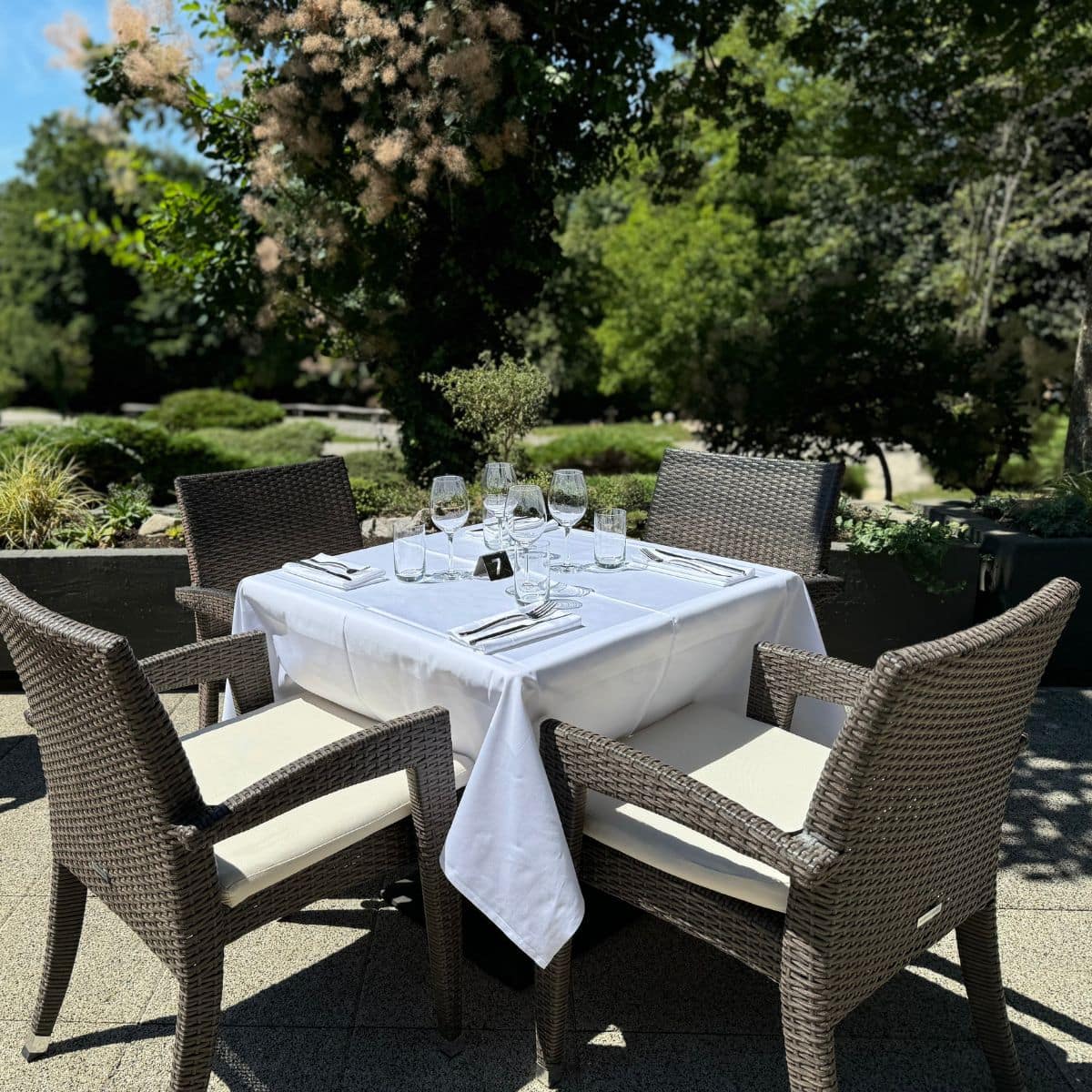There’s a reason Metaphor: ReFantanzio’s battle music sounds as cool as it does
Image: AtlusMetaphor: ReFantanzio is one of 2024’s best games racking up a stack of Game Awards including best RPG, best art direction, and best narrative. But one category in which Metaphor particularly stood out was its music. The soundtrack,...
/cdn.vox-cdn.com/uploads/chorus_asset/file/25672934/Metaphor_Key_Art_Horizontal.png)
Metaphor: ReFantanzio is one of 2024’s best games racking up a stack of Game Awards including best RPG, best art direction, and best narrative. But one category in which Metaphor particularly stood out was its music. The soundtrack, produced by Shoji Meguro – the long-time music director of the Persona series, is one of the outstanding achievements in video game music this year, particularly its battle theme which became a viral hit. In an interview with The Verge, Meguro talked about his work on the Metaphor soundtrack including what went into what is perhaps the coolest piece of video game battle music ever made.
Meguro, known for his work producing the pop-y, jazzy vibes of the Persona soundtracks, acknowledged that Metaphor’s heavy orchestral / choral sound is not something Persona fans would expect from him and definitely outside his own wheelhouse. He said in order to effectively change gears from Persona to Metaphor, he had to relearn classical music theory.
“But that’s what makes creating this score so exciting,” he said. “When I was first told about Metaphor: ReFantazio, I was told it would be an epic, high-fantasy RPG. And immediately I heard the sound of great orchestras playing and thought this might be an opportunity to write songs I’ve never really written before, which excited me greatly.”
In developing the music for Metaphor, Meguro said that he wanted to evoke a classical, fantasy experience but feature a unique twist that he said fans have come to expect from Atlus games. That twist became what Meguro called a “spiritual musical style” that defines the soundtrack, particularly the battle music.
As it was nominated for Game of the Year, Metaphor’s music made an appearance during this year’s Game Awards.
If you’ve spent any amount of time on gaming social media this year, you’ve probably seen tons of posts talking about Metaphor’s battle music. For a battle theme it goes extremely hard, with one version starting off with an orchestra-backed choir singing with the kind of gusto you’d expect for a meeting with Sephiroth, not something that plays during every minor encounter in the game. Then, somehow, the song goes even harder with the addition of a Japanese monk chanting in a rapid-fire cadence that could go toe-to-toe with Eminem. To further elevate the songs, the chants were written in an original language inspired by Esperanto, a language that was invented in 1887 and designed to be used as an internationally universal secondary language.
But finding the right voice for the job wasn’t easy. “I was looking for a specific type of voice that could sustain a fast rhythm while reading Esperanto-inspired scripture,” Meguro said.
His search led him to YouTube, where scrolling through performances was how he found a monk named Keisuke Honryo performing in Nam Jazz Experiment, a musical group that combines jazz with the recitation of traditional Buddhist sutras. “It was so great, I immediately made [Honryo] an offer and luckily he accepted and was happy to be a part of this game.”
Image: Atlus
But there’s a reason why Metaphor’s battle music is so arresting and it’s not just because of the musical stylings of a Japanese monk chanting in an invented language inspired by another invented language. Meguro had to reframe his thinking in developing the soundtrack, leading to the creation of something truly unique that changes how players perceive the game.
“I’ve always considered game scores to be similar to UI elements, constructs that exist solely to service the player,” Meguro said. “Although the score has to capture the atmosphere of the story for the user, it’s worth reminding ourselves that this music is not actually playing directly within the world the characters are in.”
Meguro explained that in conversations with the game’s director Katsura Hashino, the two discussed ways to connect what players are hearing to what the characters are hearing as well.
He said the thought experiment allowed them to “approach the music composition through a different lens.” The idea wound up implemented in the game itself. In Metaphor’s opening hours, the player’s sidekick casts a spell that allows them to hear music as they roam about the world and, inevitably, get into fights.
That moment dramatically changes the context of all of Metaphor’s music, especially its battle themes. Taking those songs from fun bits of ambience for solely players and turning them into something the characters experience too, explains why the songs go hard as they do. Every fight for us is one more event on the way to the credits, for the characters it’s life or death and it makes sense that the music they hear as they fight for their lives, reflects that gravity.
Meguro used Metaphor’s music to bring the players further into the game and he’s delighted by how well his work has been received. The two battle songs, called “Warriors in Arms” and “Warriors in Valor” instantly resonated with players, inspiring memes and even animated shorts.
“That brings me so much joy that fans are responding enthusiastically to the music of Metaphor,” Meguro said. “It’s an honor to get that kind of reaction.”

 Astrong
Astrong 























.jpg&h=630&w=1200&q=100&v=a905e78df5&c=1)





![How To Host Or Migrate A Website In 2025: Factors That May Break Rankings [+ Checklist] via @sejournal, @inmotionhosting](https://www.searchenginejournal.com/wp-content/uploads/2025/05/featured-508.png)

